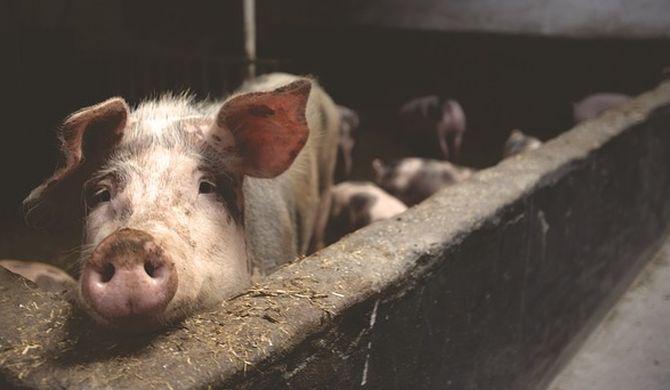China has said it will take all steps to prevent the spread of a new strain of flu being carried by pigs that was identified by scientists in the country while the World Health Organisation called for heightened vigilance to contain it for its potential to become another pandemic like COVID-19.

China was the first nation where the highly contagious COVID-19 broke out last year, which gradually spread to the entire world that till now has infected 10,424,992 people and killed 509,706, according to Johns Hopkins University.
China till now has reported 83,531 with 4,634 deaths due to the viral disease.
Chinese researchers have issued an early warning over another potential pandemic caused by an influenza virus in pigs, coming after the COVID-19, the official media in Beijing reported on Tuesday.
The warning came after scientists from China Agricultural University, the Chinese Centre for Disease Control and Prevention and other institutes, detected a pig influenza virus bearing genotype 4 (G4), which is contagious among pigs and has the possibility of jumping to humans, as the G4 virus is able to bind with human cells, state-run Global Times reported.
The study was published Monday in the United States science journal PNAS.
Researchers collected samples between 2011 and 2018 among pigs in 10 Chinese provinces and regions, and found that the virus was prevalent in pigs since 2016.
Some 10.4 per cent (35/338) of pig farm workers tested positive for antibodies against the virus, according to the paper.
The researchers are concerned that it could mutate further so that it can spread easily from person to person, and trigger a global outbreak, the BBC reported.
While it is not an immediate problem, they say, it has "all the hallmarks" of being highly adapted to infect humans and needs close monitoring.
As it is new, people could have little or no immunity to the virus.
The scientists write in the journal Proceedings of the National Academy of Sciences that measures to control the virus in pigs, and the close monitoring of swine industry workers, should be swiftly implemented.
The flu with potential to become a pandemic has emerged even as world grappled coronavirus first reported in China in December last year.
Asked for comments, the Chinese Foreign Ministry spokesman Zhao Lijian told a daily news conference on Tuesday that China is closely following the developments.
“We will take all necessary measures to prevent the spread and outbreak of any virus,” he said.
A World Health Organisation spokeswoman said: "Eurasian avian-like swine influenza viruses are known to be circulating in the swine population in Asia and to be able to infect humans sporadically”.
“Twice a year during the influenza vaccine composition meetings, all information on the viruses is reviewed and the need for new candidate vaccine viruses is discussed. We will carefully read the paper to understand what is new.
"It also highlights that we cannot let down our guard on influenza; we need to be vigilant and continue surveillance even during the COVID-19 pandemic," she said, BBC reported.
The bad new strain of influenza is among the top disease threats that experts are watching for, even as the world attempts to bring to an end the current coronavirus pandemic.
The last pandemic flu the world encountered -- the swine flu outbreak of 2009 -- was less deadly than initially feared, largely because many older people had some immunity to it, probably because of its similarity to other flu viruses that had circulated years before, the BBC report said.
That virus, called A/H1N1pdm09, is now covered by the annual flu vaccine to make sure people are protected.
The new flu strain that has been identified in China is similar to 2009 swine flu, but with some new changes.
So far, it hasn't posed a big threat, but Prof Kin-Chow Chang and colleagues who have been studying it, say it is one to keep an eye on.
The virus, which the researchers call G4 EA H1N1, can grow and multiply in the cells that line the human airways.
They found evidence of recent infection in people who worked in abattoirs and the swine industry in China when they looked at data from 2011 to 2018.
Current flu vaccines do not appear to protect against it, although they could be adapted to do so if needed.
Prof Kin-Chow Chang, who works at Nottingham University in the UK, told the BBC: "Right now we are distracted with coronavirus and rightly so. But we must not lose sight of potentially dangerous new viruses."
While this new virus is not an immediate problem, he says: "We should not ignore it".











 © 2025
© 2025